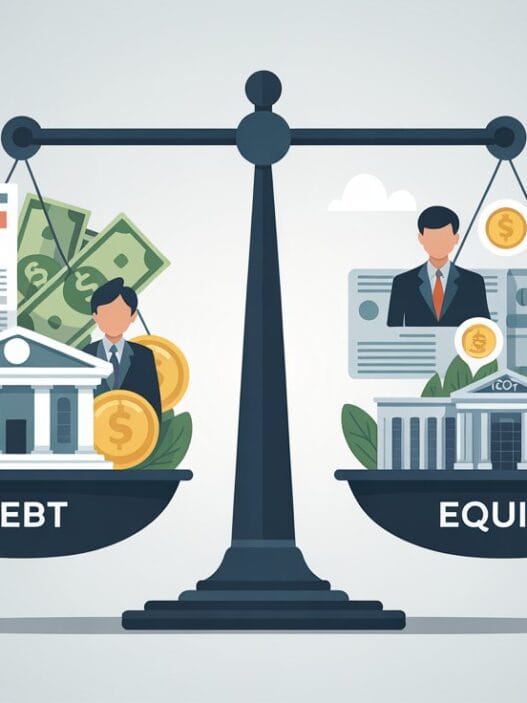You’re Being Influenced Right Now, And You Don’t Even Realize It
This isn’t some sci-fi plot about government secrets or hypnotic sound waves.
This is about something far more real and far more profitable: the billionaire mind control strategy.
Think about it: Why does Mark Zuckerberg, once the hoodie-wearing tech introvert, now surf with an American flag, train in MMA, and crack jokes on podcasts? Why does Elon Musk tweet like it’s a full-time job?
These aren’t random lifestyle choices. They’re deliberate moves in a much bigger game, a game where your attention is the currency, and the billionaires are the banks.
The crazy thing? You and I are the ones making them richer.
The Identity-as-Asset Principle

Your personal story is more than just small talk, it’s your most valuable business asset.
Billionaires understand that how people perceive you often matters more than your actual skills, products, or results. Your image is the packaging, and in business, packaging sells.
The problem? Most people mess this up. They either:
- Try too hard and come across as fake.
- Don’t try at all, letting others shape their narrative.
- create a version of themselves that nobody can connect with.
If you’re not controlling your story, someone else is and their version might cost you everything.
Mark Zuckerberg’s Branding Comeback

In the early days of Facebook, Mark Zuckerberg’s public image was simple: quiet, nerdy, hoodie-wearing genius. He built the most popular social platform in history without needing to be flashy.
But then came the scandals.
- Cambridge Analytica: Millions of users’ data used without consent for targeted political ads.
- Election interference: Troll farms and fake accounts manipulating political opinions.
- Privacy concerns: Stories of Facebook tracking users even off the platform.
Even when the accusations were exaggerated, Zuckerberg’s overly apologetic public responses eroded trust. He later admitted that his handling of these crises set the company back by decades.
The Fix
Zuck did something few CEOs have the guts to do, he rebranded not just his company, but himself.
- Facebook became Meta.
- He started surfing, practicing MMA, and showing humor on podcasts.
- He traded the uniform hoodie for tailored casualwear, becoming the “quirky tech uncle.”
The Results
Meta’s stock has more than doubled since this personality pivot. The message? If people don’t trust the man, they won’t trust the company.
Lesson: You can’t sit back and hope your reputation takes care of itself. Shape it intentionally, or someone else will.
Elon Musk: The High-Stakes Game of Founder-Led Marketing

Elon Musk built his empire on one of the boldest branding strategies in history: making himself the marketing department.
Tesla, SpaceX, the Boring Company his projects fed a narrative of a risk-taking, world-changing visionary. He was the real-life Tony Stark, and people couldn’t get enough.
Tesla even surpassed the combined value of multiple top automakers without spending on ads. Musk’s tweets alone drove investor excitement and customer loyalty.
The Problem
When everything is tied to one person, that person’s missteps can sink the ship. Over time, Musk’s tweets became more controversial, his public battles more personal, and his political commentary more polarizing.
Some Tesla owners even removed the brand logo from their cars to avoid association. The company’s stock dropped while competitors surged.
Lesson: Attention is powerful, but only when it’s focused and aligned with your core mission. Random attention is just noise.
Warren Buffett: The Quiet Giant of Trust

Then there’s Warren Buffett, a billionaire who’s never tried to go viral in his life.
Buffett has quietly built one of the strongest personal brands in history by being consistent, principled, and trustworthy. The “Buffett Effect” is so powerful that when he buys a stock, other investors rush to copy him, sometimes driving up prices before his own purchase is complete.
Why It Works
- Lives in the same modest home since 1958.
- Eats McDonald’s for breakfast and drinks five cans of Coke a day.
- Sticks to long-term, fundamentals-based investing.
Buffett doesn’t seek attention but when he speaks, markets listen. His entire brand is built on reliability, and that trust is worth more than gold.
Lesson: You don’t need to be everywhere you just need to be consistent in what you stand for.
The Billionaire Brainwashing Blueprint

“Brainwashing” here isn’t hypnosis, it’s the process of earning trust so deeply that people willingly follow your lead.
Here’s how billionaires do it:
- Craft a clear narrative – Decide who you are and why people should trust you.
- Align your image with your goals – Everything from your clothes to your tweets should reinforce your positioning.
- Maintain consistency – Trust compounds over time, but it can be destroyed in minutes.
Why This Matters for You
You might not own a billion-dollar empire, but the same principles apply. Whether you’re:
- Applying for a job
- Growing a business
- Building an audience online
Your identity is already shaping opportunities or shutting them down.
Your Identity Is Already Talking

Mark Zuckerberg rebuilt his. Elon Musk leveraged his until it backfired. Warren Buffett perfected his over decades.
The common thread? They understand that people buy into you before they buy from you.
So ask yourself: Is your personal brand building trust… or burning it?
Take control of your narrative now. Don’t just aim to be seen, aim to be remembered for something that matters.
For more strategies, insights, and powerful tips, visit Forcefall.com — your go-to source for mastering success.














